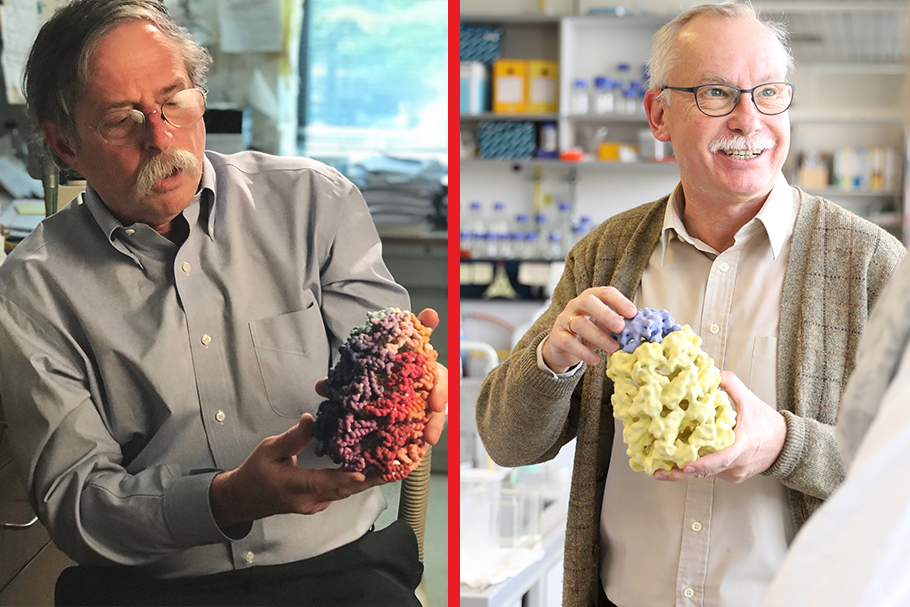Johnson & Johnson has named Franz-Ulrich Hartl, M.D., Director of the Max Planck Institute of Biochemistry and Arthur Horwich, M.D., Sterling Professor, Yale School of Medicine and Howard Hughes Medical Institute as winners of the 2019 Dr. Paul Janssen Award for Biomedical Research. Dr. Hartl, a biochemist and Dr. Horwich, a geneticist, won for their revolutionary insights into the fundamental molecular process of protein folding.
Proteins are the molecules in cells that drive almost every biological process. Through their collaboration, Hartl and Horwich discovered that proteins are folded into their proper shape with the help of other specialized proteins called molecular chaperones. This process allows the proteins to reach their functional shape, which enables them to perform their biological function. These insights have broad implications throughout biology and medicine, and hold promise for the development of new therapeutic strategies for treating diseases like Parkinson’s, Alzheimer’s and cancer, in which defects in protein folding are involved.
“Drs. Hartl and Horwich combined their brilliant insights and elegant approaches to overturn the dogma of their day about the process of protein folding,” said David Julius, Ph.D., Professor and Chair of the Department of Physiology, University of California, San Francisco, and Chair of the 2019 Dr. Paul Janssen Award selection committee. “Their studies revolutionized our understanding of how proteins achieve their shape and revealed how defects in this process may contribute to a variety of disorders ranging from metabolic to neurodegenerative diseases.”
Proteins are the molecules in cells that drive almost every biological process. Through their collaboration, Hartl and Horwich discovered that proteins are folded into their proper shape with the help of other specialized proteins called molecular chaperones. This process allows the proteins to reach their functional shape, which enables them to perform their biological function. These insights have broad implications throughout biology and medicine, and hold promise for the development of new therapeutic strategies for treating diseases like Parkinson’s, Alzheimer’s and cancer, in which defects in protein folding are involved.
“Drs. Hartl and Horwich combined their brilliant insights and elegant approaches to overturn the dogma of their day about the process of protein folding,” said David Julius, Ph.D., Professor and Chair of the Department of Physiology, University of California, San Francisco, and Chair of the 2019 Dr. Paul Janssen Award selection committee. “Their studies revolutionized our understanding of how proteins achieve their shape and revealed how defects in this process may contribute to a variety of disorders ranging from metabolic to neurodegenerative diseases.”

